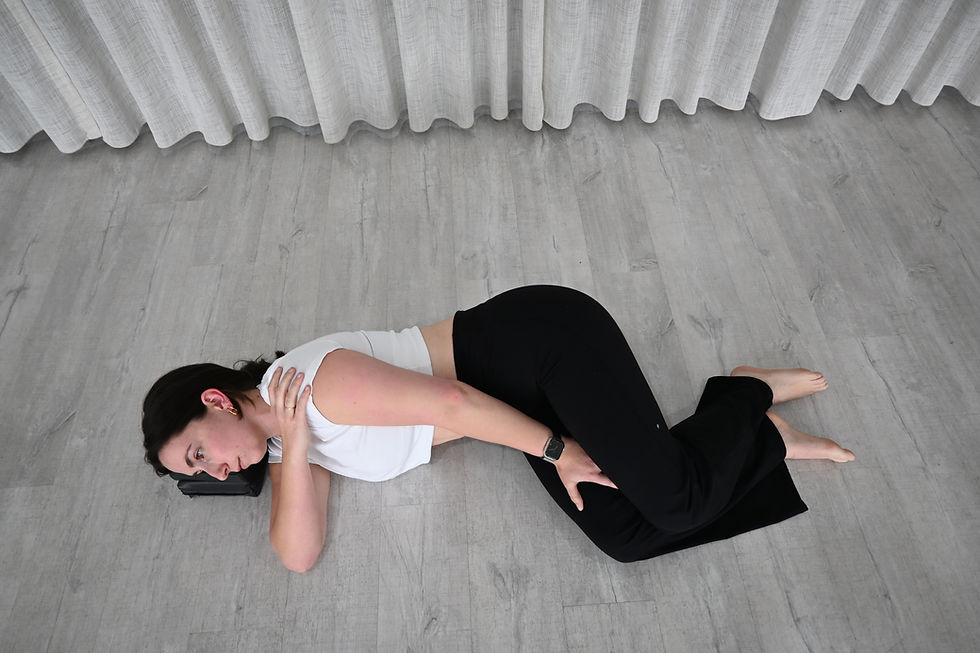What Really Is Acupuncture & How Can It Help Me?
- Mel Salvia

- Dec 14, 2021
- 3 min read

What is Acupuncture?
Acupuncture is part of the ancient practice of Traditional Chinese Medicine. The origins of acupuncture can be traced back approximately 3000 years, making it one of the oldest health care systems in the world!
In Chinese acupuncture, health in dependent on the body’s life energy know as Qi, flowing in a smooth and balanced way through a network of energy pathways. These pathways called meridians connect to all major organs of the body. Qi consists of equal and opposite forces called Yin and Yang. When the flow of Qi is disturbed, Yin and Yang become unbalanced resulting in illness. The flow of Qi can be affected by factors like stress, reduced exercise, poor sleep and nutrition, weather, hereditary conditions, infections and trauma. Acupuncturists restore the balance of Qi by inserting very fine sterile needles into the body at carefully located acupuncture points situated along these meridians.
Acupuncture seeks to correct the imbalances in the body’s energy channels and stimulate the body’s own natural healing mechanisms to achieve optimal function and wellness. Acupuncture aims to focus on a patient’s overall well-being, holistically restoring and balancing physical, emotional and spiritual health.
Your Acupuncturist will conduct a detailed assessment through questioning and examining your tongue and pulse. They will then make a Chinese Medicine diagnosis based on the pattern of your symptoms and create an individualised treatment plan for you.

What does Acupuncture feel like?
Most patients report feeling minimal pain as the needle is inserted and might soon after feel an ache or heaviness, and occasionally an involuntary twitch. Sometimes a mild electric current may be applied to the needles or the needles may be heated with a herb called moxa (or mugwort) during the treatment. Some patients report acupuncture makes them feel energised while others state they feel relaxed.
If needles are not well tolerated, other Chinese Medicine techniques like acupressure (pressing on an acupuncture point), Chinese massage, cupping or Gua Sha (scraping the skin with a small tool to increase circulation) can be used.
How does Acupuncture affect and benefit the body?
Acupuncture points are believed to stimulate nerves, muscles, connective tissue and the central nervous system (spinal cord and brain). This stimulation can release chemicals into the body which may increase the body's natural healing abilities and promote physical and emotional well-being.
Acupuncture may have the following benefits:
Remove energy blockages in the body
Reduce pain and inflammation
Increase blood and nerve supply to tissues
Stimulate natural painkillers or endorphins in the body
Enhance mental clarity
Initiate neurological, immune and hormonal responses

What conditions can be treated with Acupuncture?
Acupuncture may be used to treat a wide range of conditions for example:
Pain and muscle tension including fibromyalgia
Lower back pain and sciatica
Neck pain, headaches and migraines
Arthritis
Poor sleep
Stress and anxiety
Low energy or for overall wellness
Nausea and digestive concerns
Respiratory disorders including colds, asthma, allergies and sinus issues
Gynaecological conditions including labour preparation, labour pain and menopausal symptoms
Skin conditions
Neurological conditions like stroke
What is the difference between Acupuncture and Dry Needling?
Acupuncture involves inserting needles into specific points to rebalance the flow of energy through pathways (meridians) in your body, to decrease pain, improve wellness or achieve a number of desired effects. Dry needling involves inserting needles into underlying muscular trigger points (knots) to manage pain, release muscle tension, and improve movement impairments.
Both have been shown to be effective and indicated at different times with various circumstances or conditions. Consult your physiotherapist or acupuncturist on which treatment is right for you.
Information sourced from https://www.mayoclinic.org/tests-procedures/acupuncture/about/pac-20392763 and https://www.hopkinsmedicine.org/health/wellness-and-prevention/acupuncture




Comments